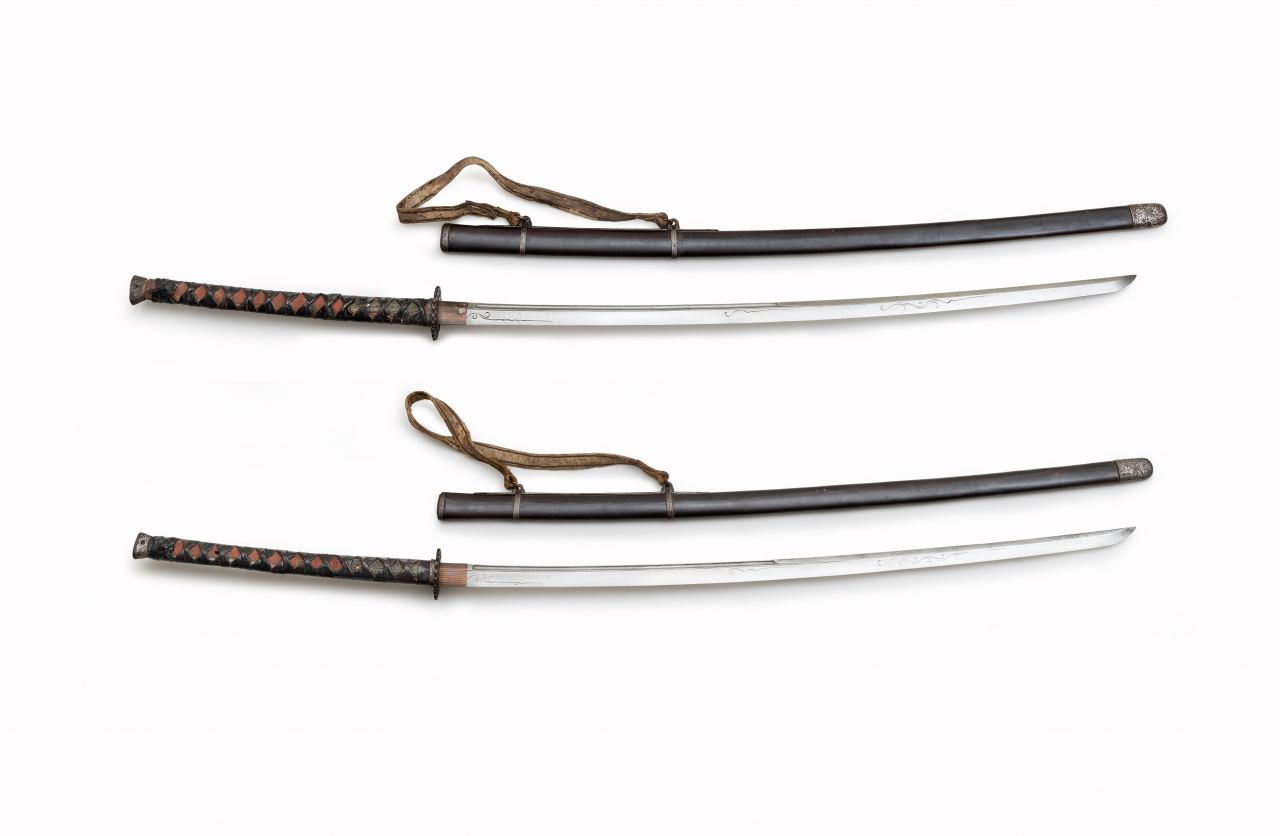Adm. Yi Sun-sin swords designated national treasures
Published : 2023-08-25 18:32:12

Two long swords inscribed with the poems of Admiral Yi Sun-sin (1545-1598), a distinguished naval commander during the Joseon era, have been designated as national treasures, the Cultural Heritage Administration announced Thursday.
The two swords, approximately 2 meters in length and weighing 5 kilograms each, are currently housed within Hyeonchungsa Shrine in Asan, South Chungcheong Province. They are assessed to have served ceremonial rather than battlefield purposes.
"The dual swords hold significant historical value associated with Chungmugong (a posthumous title given to the great military commanders of the Joseon era), shedding light on the amalgamation of Japanese production techniques on top of the traditional sword-making methods of the Joseon era," the CHA said in explaining its rationale for the designation.
The swords also exhibit remarkable artistry, demonstrated through the sharpness and durability of their blades, the CHA added.
Despite their considerable age, the agency stressed that the swords were well-preserved.
Adorning the blades of each sword are verses authored by the admiral himself.
Some lines read: "Pledging to the heavens to make the mountains and rivers tremble with this blade," and "Wielding the sword to stain the mountains and rivers with blood."
The inscribed characters on the swords' tangs -- the back portion of the blade -- indicate that they were created in 1594, along with the names of the two swordsmiths.
Prior to their official designation, debates revolved around whether to categorize the items as Yi Sun-sin's "janggeom" or "jangdo," both of which refer to a long sword.
The CHA clarified that "geom" represents a single-edged sword with a curved blade, while "do" features double-edged blades. After analyzing the swords' shape, they were classified as "jangdo."
Additional artifacts linked to Yi Sun-sin, including a hat ornament, a belt and a pair of peach-shaped goblets—all utilized by Admiral Yi during wartime—were collectively designated as treasures in 1963.
Yi achieved success in the military examination and secured a commission in 1576, during the ninth year of King Seonjo's reign. At the age of 47, he was given the role of commander of the Jeolla Province Naval District.
Anticipating the Japanese invasion in 1592, he devised the Turtle Ship, or Geobukseon, which he employed to achieve victories in naval clashes such as those at Hansando Island, Okpo and Myeongnyang.
General Yi met his demise during the Battle of Noryang in 1598.
http://www.koreaherald.com/common/newsprint.php?ud=20230825000574